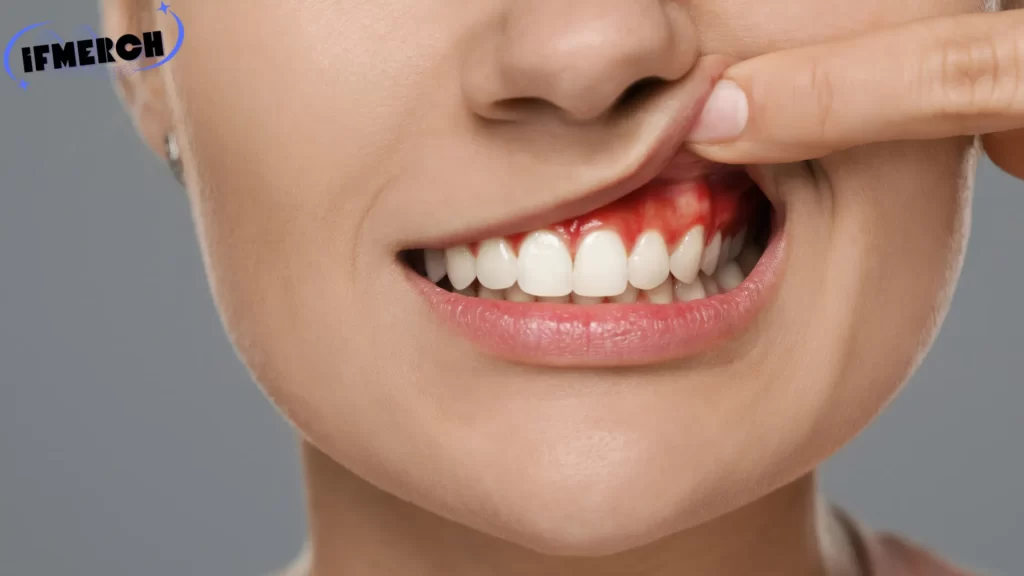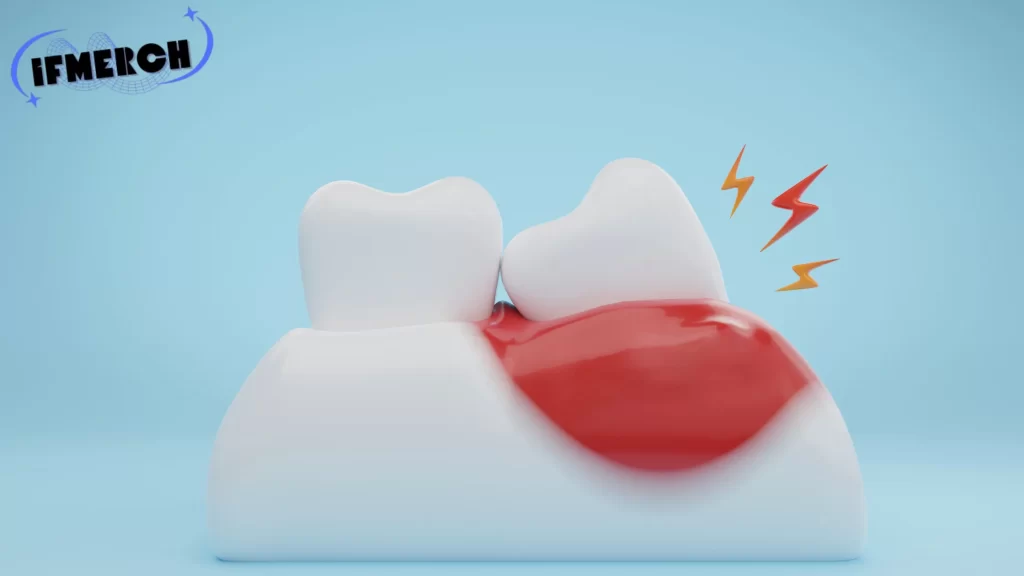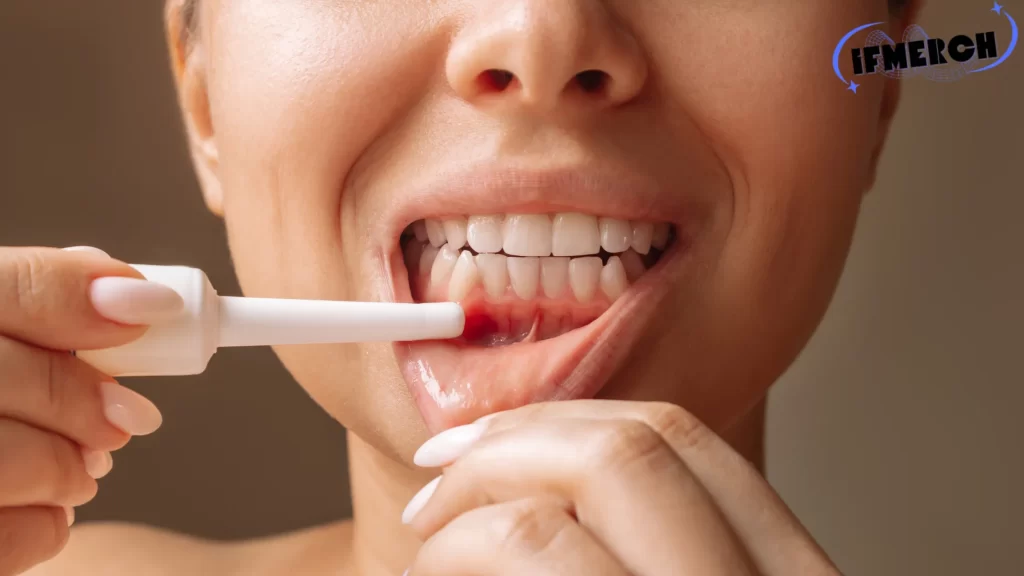Table of Contents
Can gum disease kill you? Many people think of gum disease as a minor issue, but the truth is, it’s much more than that. Gum disease, also known as periodontal disease, can lead to severe health problems if it is left untreated. It starts with gum inflammation and can result in tooth loss, but it can also affect your overall health, even leading to fatal complications. This article will explore how gum disease can affect the body and what steps you can take to protect yourself.
As we explore this topic, we’ll answer important questions about oral hygiene and care and examine how gum disease can affect different parts of the body. We’ll also examine how good oral hygiene routines can help prevent this dangerous condition.
What Is Gum Disease?

Gum disease is a bacterial infection of the soft gums and gum tissue that supports your teeth. It starts with bacteria building up on your teeth and gums. When you don’t brush your teeth or floss regularly, this bacteria forms plaque, which hardens into tartar and irritates your gums. The early stage of gum disease is called gingivitis. Gingivitis spreads when gum tissue becomes inflamed and swollen. It’s marked by red or purple gums that bleed when you brush your teeth.
If gingivitis isn’t treated, it can progress to periodontitis. At this stage, the infection spreads below the gum line, causing permanent damage to the bone that supports your teeth. Gum disease isn’t just a dental issue—it can have consequences far beyond your mouth.
Also Read: How Long Does a Toothache Last? Discover the Shocking Truth
How Can Gum Disease Affect Your Body?
Many people don’t realize that gum disease can affect their entire body. Can gum disease kill you? Yes, it can, in more ways than one. Here’s how gum disease impacts various parts of your body:
1. Gum Disease and Heart Disease
Can gum disease kill you through heart disease? Absolutely. Gum disease can increase your risk of heart disease. When bacteria from your gum line enter your bloodstream, they can cause inflammation in your blood vessels. This inflammation contributes to plaque buildup in your arteries, leading to heart disease. If left untreated, this condition can lead to heart attacks or strokes.
2. Gum Disease and Diabetes
Diabetes and gum disease have a two-way relationship. People with diabetes are more likely to develop gum disease due to high blood sugar levels, which feed gum bacteria. On the other hand, severe gum disease can make it harder for people with diabetes to control their blood sugar levels. The gum damage caused by periodontal disease worsens diabetes, creating a dangerous cycle.
3. Gum Disease and Respiratory Infections
The bacteria from gum infections can travel to your lungs, causing respiratory illnesses. For people with pre-existing lung problems, like chronic obstructive pulmonary disease (COPD), this can be particularly dangerous. Can gum disease kill you by affecting your lungs? Because untreated gum disease increases the risk of severe respiratory infections like pneumonia.
4. Gum Disease and Pregnancy
Pregnant women are especially vulnerable to gum disease, which increases the risk of pregnancy complications, such as premature birth and low birth weight. Maintaining healthy gums is crucial to protecting you and your baby if you’re pregnant.
Can Gum Disease Kill You?

Yes, gum disease can kill you. Gum disease isn’t just an oral health issue; it’s a condition that can affect your entire body. If left untreated, bacteria from gum infections can enter your bloodstream and cause severe health conditions such as heart disease, diabetes, and respiratory infections. These diseases can be fatal, especially when gum disease is ignored for too long.
Many people underestimate gum disease because it starts slowly, often as mild gingivitis. But as the gum bacteria spread and the condition worsens, the risk of deadly complications rises. Can gum disease kill you? Absolutely—if you don’t take it seriously.
Signs and Symptoms of Gum Disease

Knowing the symptoms of gum disease can help you catch it early and prevent further complications. Here are some signs to watch out for:
- Red, swollen, or soft gums
- Bad breath that won’t go away
- Receding gums (where your teeth appear longer)
- Loose teeth or changes in your bite
- Painful chewing
- Sensitive teeth
- Gum abscesses
If you experience any of these symptoms, it’s crucial to seek treatment immediately. Untreated gingivitis can lead to gum abscesses and recurrent gum infections, causing permanent damage to your oral tissue.
Preventing Gum Disease

The best way to avoid gum disease is by maintaining good oral hygiene and oral care habits. Here’s how you can protect yourself:
1. Brush and Floss Daily
Brushing your teeth twice daily and flossing once daily is essential for removing plaque and bacteria from your gum line. Make sure to brush your teeth for at least two minutes using toothpaste that contains fluoride. A worn-out toothbrush or ineffective toothpaste can make your efforts less effective, so replace your toothbrush regularly and choose a toothpaste that strengthens your gums.
2. Use Antiseptic Mouthwash
Antiseptic mouthwash can kill bacteria that lead to gum disease. Incorporate a specialized mouthwash into your oral care routine to protect your gums from infections. This is especially useful for people who are more prone to gum disease.
3. Visit Your Dentist Regularly
Regular visits to your dentist are vital to preventing gum disease. Your dentist can spot signs of gingivitis and provide treatment before it becomes periodontitis. Professional cleanings remove tartar that brushing alone can’t remove. Most dentists recommend check-ups every six months, but you may need more frequent visits if you have a high risk of gum disease.
4. Eat a Healthy Diet
What you eat affects your oral health. A balanced diet rich in vitamins and minerals helps maintain healthy gums. Eating foods high in sugar can lead to plaque buildup and gum inflammation. To keep your mouth healthy, try to limit your consumption of sugary snacks and eat foods that promote good saliva flow.
5. Quit Smoking
Smoking weakens your immune system and makes it harder for your body to fight infections, including gum disease. If you smoke, quitting is one of the best things you can do to protect your oral and overall health.
When to See a Dentist for Gum Disease
If you notice any signs of gingivitis or other oral problems, it’s time to see your dentist. Gum disease won’t go away on its own, and the longer you wait, the harder it will be to treat. Your dentist can offer various treatment options, depending on the severity of your condition.
Also Read: How Much Does It Cost to Fix a Chipped Tooth? Shocking Prices Revealed!
What Happens if Gum Disease Is Left Untreated?
If left untreated, gum disease can cause serious health issues beyond tooth loss. It can spread to the bones and tissues that support teeth, leading to tooth loss. Over time, the infection can enter the bloodstream, contributing to heart disease, diabetes complications, and respiratory infections.
Untreated gum disease also increases the risk of systemic health complications, such as acute necrotizing ulcerative gingivitis. This is a severe and life-threatening condition in which the tissue of the gums and cheeks dies, causing intense pain and bad breath. Gum infections can lead to adjacent teeth becoming affected, resulting in the loosening of many teeth.
In some cases, untreated gum disease can even result in fatal complications, particularly for individuals who already have certain illnesses such as heart disease or diabetes.
Gum Disease Treatment Options
Several effective treatment options are available for gum disease, depending on how advanced it is. These include:
1. Professional Cleaning
Professional cleanings can reverse gum disease in the early stages of gingivitis. A dental hygienist will remove plaque and tartar from your teeth and below your gum line, helping to stop the progression of gum inflammation.
2. Scaling and Root Planing
Scaling and root planing may be necessary if your gum disease has advanced beyond gingivitis. This deep cleaning treatment removes plaque from the roots of your teeth and smooths the surfaces, allowing your gums to heal and reattach.
3. Surgery
In severe cases of periodontitis, surgery may be required. Gum surgery can remove damaged tissue or restore lost bone through grafting procedures. It is a more invasive treatment but may be necessary to save teeth in advanced stages of gum disease.
Also Read: Can Gum Disease Kill You? Dental Patients Needs To Know
Why Ignoring Gum Disease Can Be Dangerous
Ignoring gum disease is dangerous not only for your mouth but for your overall health. The bacteria from gum infections can spread throughout your body, increasing your risk of fatal conditions like heart disease, diabetes, and respiratory infections. Can gum disease kill you? Yes, the longer it goes untreated, the more dangerous it becomes.
It cannot be overstated how important it is to maintain a good oral hygiene routine and visit your dentist regularly. Gum disease is a slow killer, but it’s also preventable with proper care.



